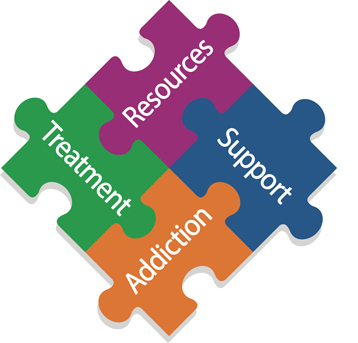Tailored mental health treatment services support psychological well-being during recovery.
Tailored mental health treatment services support psychological well-being during recovery.
Blog Article
Key Kind Of Dependency Therapy: Navigating Alcohol Dependency Healing Via Evidence-Based Practices
In the realm of alcoholism recuperation, the assimilation of Cognitive-Behavioral Treatments (CBT) and Medication-Assisted Treatment (FLOOR COVERING) notes a crucial stride in the direction of efficiency and patient-centered treatment. CBT supplies an organized course to reframe destructive thought patterns, while floor covering supplies a biochemical footing versus the physical tribulations of withdrawal. When these evidence-based methods are supplemented with all natural approaches, such as mindfulness and nutritional support, they create a durable framework for therapy. The journey via these modalities provides special obstacles and results, laying bare the question of exactly how these therapies concretely converge to promote sustained recuperation.

Comprehending Cognitive-Behavioral Therapies in Alcoholism Recuperation
As alcoholism recovery develops, cognitive-behavioral therapies (CBT) have become a cornerstone in reliable treatment approaches. CBT runs on the concept that maladaptive actions, such as too much alcohol consumption, are driven by useless ideas and ideas. Therapy concentrates on recognizing these negative patterns and training individuals just how to test and replace them with even more useful thinking. This treatment is not only concerning taking care of habits yet additionally reshaping cognitive processes, which can lead to sustained sobriety. Sessions generally involve sensible skills training, such as dealing techniques for dealing with food cravings and stress and anxiety administration strategies. The versatile nature of CBT permits it to be customized to the unique demands of each individual, boosting its performance in the realm of alcohol healing.

The Duty of Medication-Assisted Treatment in Handling Withdrawal and Cravings
Medication-assisted treatment (MAT) plays a vital function in the administration of withdrawal signs and food cravings in people recuperating from alcohol addiction. meth addiction treatment. Such combination supports the retention in treatment programs and adds considerably to protecting against relapse, noting Floor covering as a cornerstone of efficient alcohol dependency treatment.

Integrating Alternative Strategies With Traditional Therapies for Comprehensive Care
While medication-assisted therapy provides a fundamental technique to alcohol healing, incorporating all natural approaches with typical treatments uses a this post much more thorough care version. By integrating these varied methods, therapy programs can customize interventions to private demands, advertising an extra sustainable healing. This integrated technique highlights the relevance of a diverse technique in the efficient treatment of alcohol dependency.
Conclusion
In final thought, effective alcohol addiction recuperation Visit This Link leverages a mix of evidence-based methods. Cognitive-Behavioral Therapies reframe negative attitude, while Medication-Assisted Therapy takes on the physical challenges of withdrawal and food cravings. Integrating holistic approaches, such as mindfulness and proper nutrition, with typical treatments ensures a comprehensive care strategy. Tailored to private needs and supported in time, these methods collectively enhance websites the possibility of sustained soberness and total well-being in recovering individuals. opioid addiction treatment.
Report this page